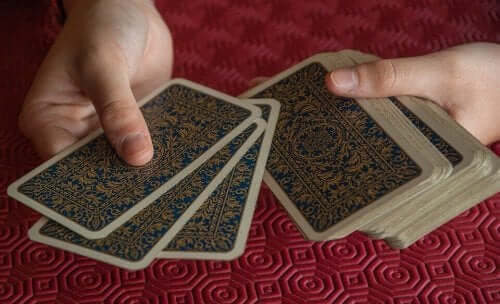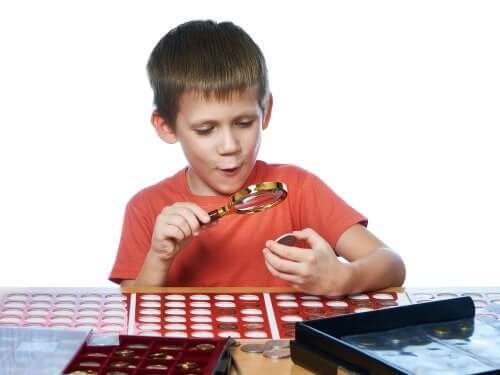6 Benefits of Collecting Trading Cards

Children become excited about the various activities they can do for fun and distraction. It’s even better when these activities instill values and virtues children need to learn during childhood. In this article, discover six benefits of collecting trading cards.
When can a child start collecting trading cards?
Experts state that every child older than four is capable of collecting things. At this stage of their development, children can group, sort, and have fun selecting objects. Also, at this stage, an extraordinary curiosity leads children to want to know more about everything around them.
6 amazing benefits of collecting trading cards
One of the activities that parents can foster during childhood is collecting trading cards with fun pictures. To do this, you can encourage your children to collect trading cards of their favorite cartoon characters. Psychologically, these tasks have the same effect as exercise on the human body.
Here are some of the benefits of collecting trading cards:
Promotes accountability
Most children between the ages of four and five are often careless with their toys and personal items. Promoting the collection of trading cards will help your child value the objects they collect, meaning they’ll strive to care for them and keep them in perfect condition.
In addition, it teaches older children the importance of saving money to be able to expand their collection. Also, the interest in a particular object will lead your children to take on other tasks.

Develops skills
One of the benefits of collecting trading cards is that they help children acquire skills that will help them in the future, such as organization and concentration.
Collecting trading cards requires concentration, as children have to think about how to organize and preserve them to maintain control and order. Undoubtedly, these are skills that will help make them into successful adults.
Develops knowledge
The excitement of having all their trading cards in order promotes the development of numerical skills. If your children stick the trading cards they collect in albums, you can ask them to say the numbers aloud and to look for matching numbers.
This way, they’ll learn the numbers and order. In addition, your children can learn to group their trading cards according to color, a character, or a team, among others.
Boosts reading skills
You can help your little ones improve their reading skills by asking them to read the character’s name printed on the trading card out loud. Also, if the trading card includes a small description, your children will be forced to read more. Doing this constantly will help them become good readers.
Develops social skills
Another benefit of collecting trading cards is that it helps slightly older children develop social skills. Asking their relatives, colleagues, and friends questions about the common objects they collect enhances these skills.
Also, it develops the ability to negotiate to satisfy a need, while taking into account solutions for the person they’re negotiating with.
On the other hand, they help children learn to socialize, recognize and defend their peers’ rights, and how to obtain things in the best possible way. All these attitudes help children be kind and give thanks after making an exchange. Ideally, you should help your children control any indication of aggressiveness and frustration.

Collecting trading cards helps develop memory
The need to not have any repeated trading card or object will help your children remember what they own and what they need. These skills help them improve their memory. It’ll also develop the ability to focus their attention and effort on an activity.
In short, there are many benefits of collecting trading cards. Doing so will teach them to work hard on an activity and help them become effective adults. This is a fun activity that fosters sociability and camaraderie. What are you waiting for? Help your children start their collection today!
Children become excited about the various activities they can do for fun and distraction. It’s even better when these activities instill values and virtues children need to learn during childhood. In this article, discover six benefits of collecting trading cards.
When can a child start collecting trading cards?
Experts state that every child older than four is capable of collecting things. At this stage of their development, children can group, sort, and have fun selecting objects. Also, at this stage, an extraordinary curiosity leads children to want to know more about everything around them.
6 amazing benefits of collecting trading cards
One of the activities that parents can foster during childhood is collecting trading cards with fun pictures. To do this, you can encourage your children to collect trading cards of their favorite cartoon characters. Psychologically, these tasks have the same effect as exercise on the human body.
Here are some of the benefits of collecting trading cards:
Promotes accountability
Most children between the ages of four and five are often careless with their toys and personal items. Promoting the collection of trading cards will help your child value the objects they collect, meaning they’ll strive to care for them and keep them in perfect condition.
In addition, it teaches older children the importance of saving money to be able to expand their collection. Also, the interest in a particular object will lead your children to take on other tasks.

Develops skills
One of the benefits of collecting trading cards is that they help children acquire skills that will help them in the future, such as organization and concentration.
Collecting trading cards requires concentration, as children have to think about how to organize and preserve them to maintain control and order. Undoubtedly, these are skills that will help make them into successful adults.
Develops knowledge
The excitement of having all their trading cards in order promotes the development of numerical skills. If your children stick the trading cards they collect in albums, you can ask them to say the numbers aloud and to look for matching numbers.
This way, they’ll learn the numbers and order. In addition, your children can learn to group their trading cards according to color, a character, or a team, among others.
Boosts reading skills
You can help your little ones improve their reading skills by asking them to read the character’s name printed on the trading card out loud. Also, if the trading card includes a small description, your children will be forced to read more. Doing this constantly will help them become good readers.
Develops social skills
Another benefit of collecting trading cards is that it helps slightly older children develop social skills. Asking their relatives, colleagues, and friends questions about the common objects they collect enhances these skills.
Also, it develops the ability to negotiate to satisfy a need, while taking into account solutions for the person they’re negotiating with.
On the other hand, they help children learn to socialize, recognize and defend their peers’ rights, and how to obtain things in the best possible way. All these attitudes help children be kind and give thanks after making an exchange. Ideally, you should help your children control any indication of aggressiveness and frustration.

Collecting trading cards helps develop memory
The need to not have any repeated trading card or object will help your children remember what they own and what they need. These skills help them improve their memory. It’ll also develop the ability to focus their attention and effort on an activity.
In short, there are many benefits of collecting trading cards. Doing so will teach them to work hard on an activity and help them become effective adults. This is a fun activity that fosters sociability and camaraderie. What are you waiting for? Help your children start their collection today!
All cited sources were thoroughly reviewed by our team to ensure their quality, reliability, currency, and validity. The bibliography of this article was considered reliable and of academic or scientific accuracy.
- Meneses, M. Monge, M. (2001). El juego en los niños: enfoque teórico. Revista Educación. https://doi.org/10.15517/revedu.v25i2.3585.
- Carolina, M., & Pérez, L. (2005). LA EVALUACIÓN DE LA CREATIVIDAD. Perú). https://doi.org/10.1016/S0140-6736(11)60283-3.
- Arias-Castilla, C. A., Buitrago-Amaya, M. Y., Camacho-Amaya, Y. P., & Vanegas-Laguna, Y. (2014). Influencia del juego como pilar de la educación en el desarrollo del lenguaje oral y escrito por medio de los juegos de mesa. Ciencia y Tecnología. https://doi.org/10.1007/s00193-013-0442-y.
This text is provided for informational purposes only and does not replace consultation with a professional. If in doubt, consult your specialist.








